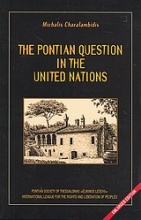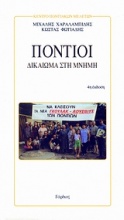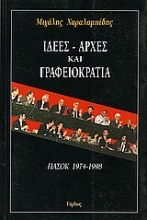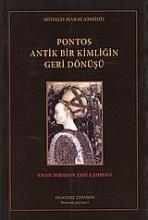The Pontian Question in the United Nations
If one takes an honest, even a somewhat hon-est, look at the Eastern Medterranean, and especially at the region which historically took the name of Asia Minor and Anatolia, one immediately gets the feeling that in this part of the world, history stopped some centuries ago. Here, that historical process -the great movement of peoples, which in Europe in the 19th and early 20th century led to the end of the empires, the end of the ancien regime, and to the creation of the contemporary nation-states -did not evolve naturally. Here, the demand of history and of the national bourgeois movements, like the Greek and the Armenian ones, for democratization of political institutions, for deep social and economic reforms, and for political autonomy and self-determination, was instead answered by the Ottoman establishment, the Young Turk and Kemalist movement, with the physical extermination and uprooting of the region's indigenous, but ethnically different, peoples. The transition from empire to nation-state, and from feudalism to capitalism was undertaken by means of the biological, the physical, annihilation of the other nation and the other class. Asia Minor entered the 20th century with its first two genocides: The Armenian in 1915, and the Pontian in 1916-1923.
- ISBN978-960-88461-5-9
- Ημ/νια Έκδοσης2009
- Σελίδες213
- ΔέσιμοΜαλακό εξώφυλλο
- Διαθέσιμες Γλώσσες
- Κατηγορίες Βιβλίου
- Θεματολογίες Βιβλίου
- Συγγραφέας
- Εκδότης







